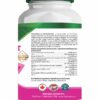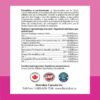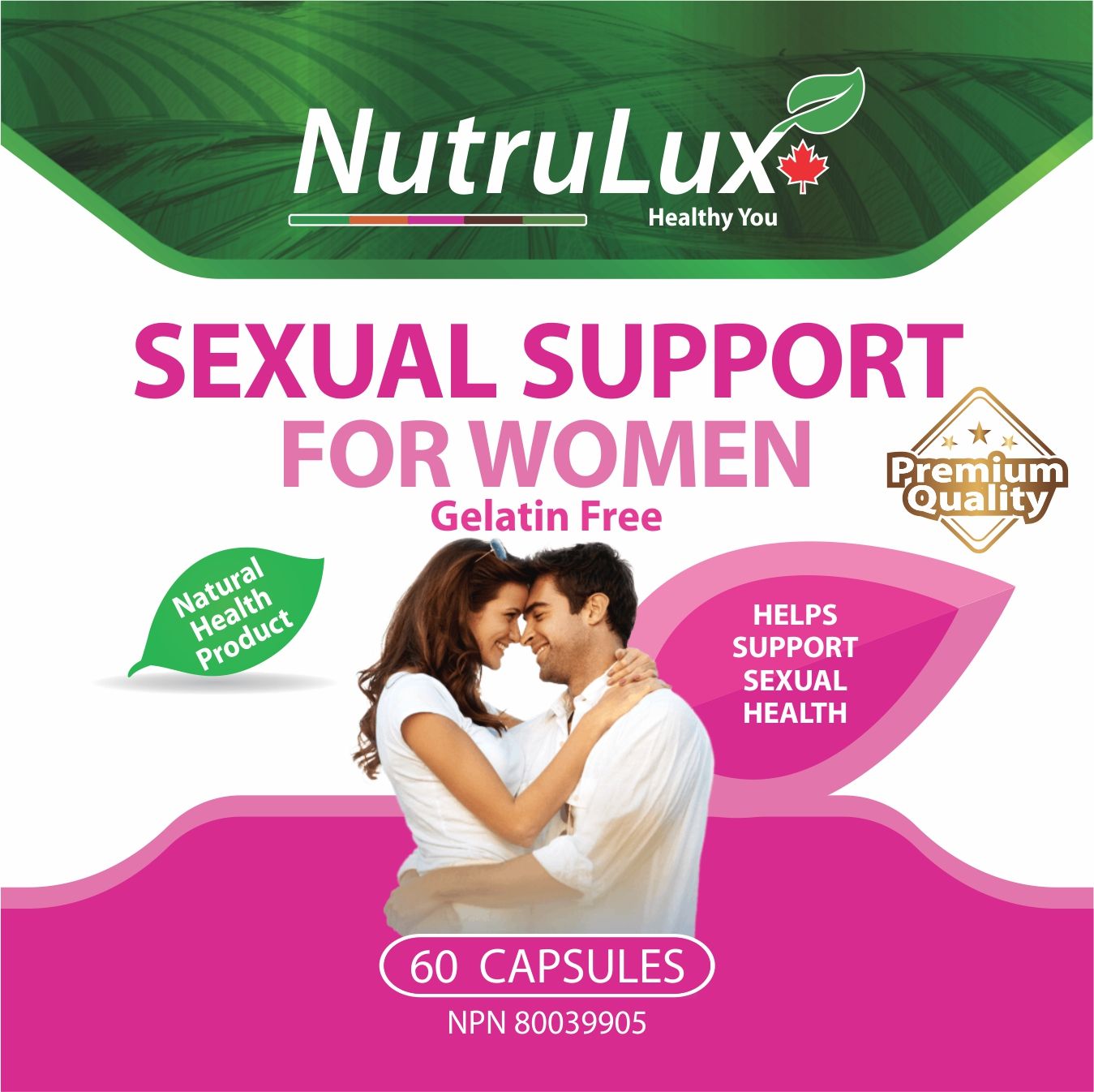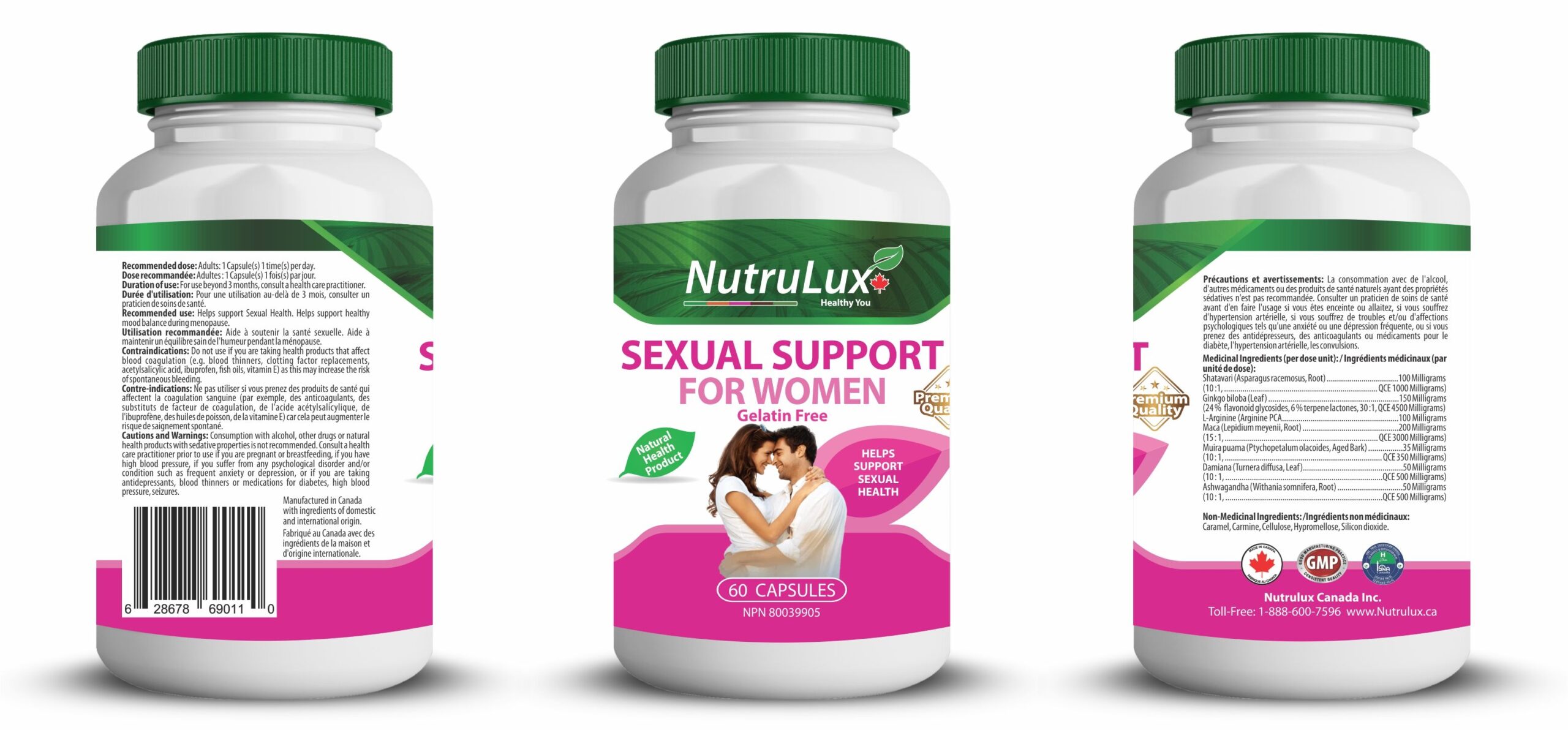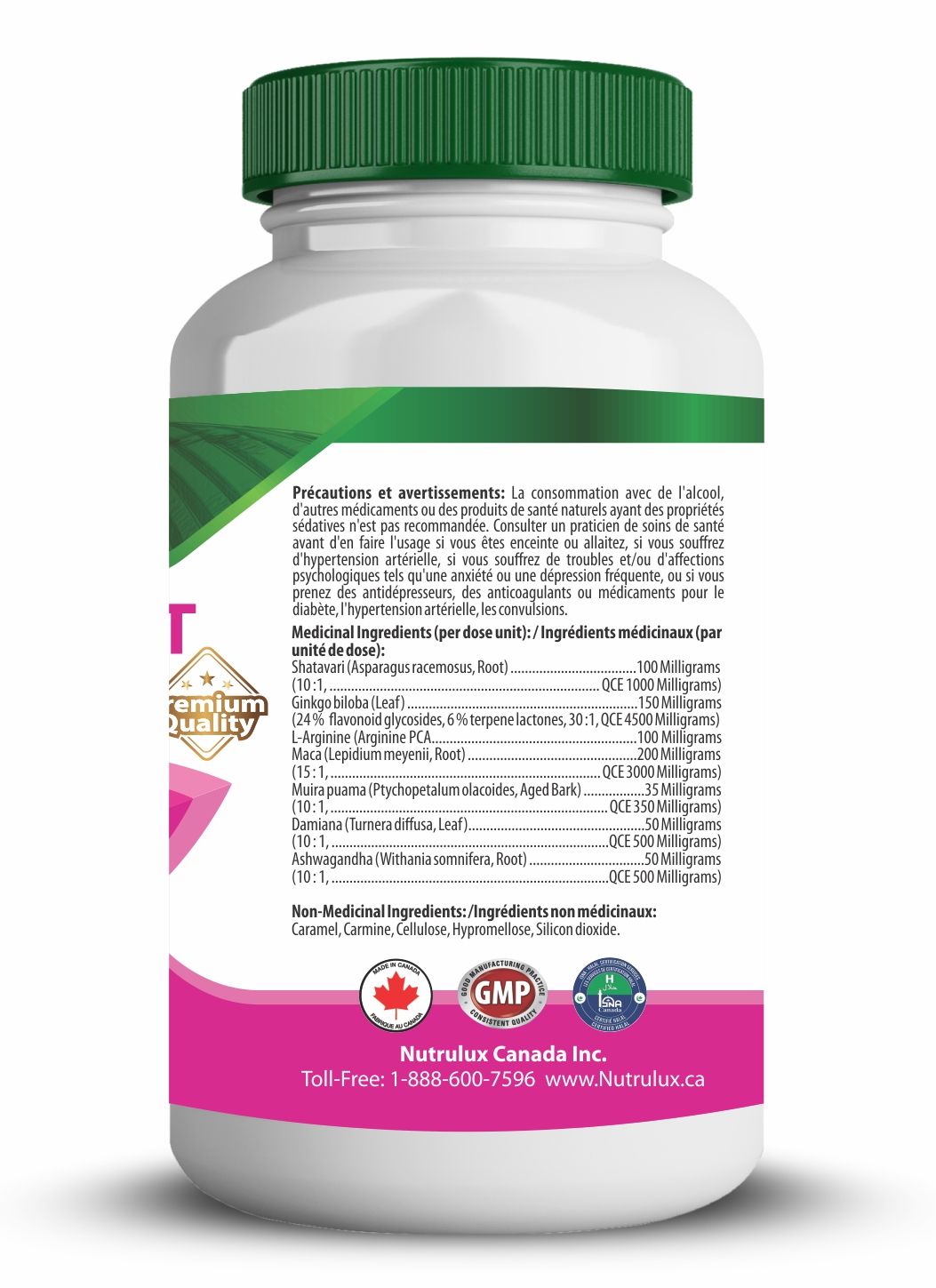
Sexual Support For Women ( 100 mg Shatavari ) Halal Gelatin Free Capsules
$39.99
Low libido in women can be caused by a wide range of factors such as low estrogen levels, menopause, pregnancy, stress, certain medications, underlying health conditions, and relationship issues.
Recommended dose: Adults: 1 Capsule(s) 1 time(s) per day.
Duration of use: For use beyond 3 months, consult a health care practitioner.
Recommended use: Helps support Sexual Health. Helps support healthy mood balance during menopause.
Contraindications: Do not use if you are taking health products that affect blood coagulation (e.g. blood thinners, clotting factor replacements, acetylsalicylic acid, ibuprofen, fish oils, vitamin E) as this may increase the risk of spontaneous bleeding.

Buy 1 & Get 1 Free
Description
How does it work?
- Anxiety. Taking a specific ginkgo extract called EGb 761 (Dr. Willmar Schwabe Pharmaceuticals) by mouth for 4 weeks can reduce symptoms of anxiety by a small amount.
- Diseases, such as Alzheimer disease, that interfere with thinking (dementia). Taking ginkgo 240 mg by mouth daily may slightly improve dementia symptoms. Ginkgo doesn’t seem to prevent dementia from developing or getting worse.
- Hearing loss.
- : In patients with sudden hearing loss, giving ginkgo by IV along with regular treatments can help to improve hearing. It’s not clear if oral ginkgo is helpful. IV products can only be given by a healthcare provider.
- Premenstrual syndrome (PMS). Taking ginkgo leaf extract by mouth seems to relieve breast tenderness and other symptoms associated with PMS. For this use, it is started during the 16th day of the menstrual cycle and continued until the 5th day of the following cycle.
- Schizophrenia. Taking ginkgo leaf extract by mouth daily in addition to conventional antipsychotic medications for 8-16 weeks can reduce some symptoms of schizophrenia. It might also reduce side effects from antipsychotic medications, like thirst, constipation, and tardive dyskinesia, a movement disorder.
- Stroke. Taking ginkgo extract by mouth or by IV along with standard therapy seems to improve thinking, memory, and the ability to complete activities of daily living in people who are recovering from a stroke. Taking ginkgo extract by mouth might not be as effective as IV. But IV products can only be given by a healthcare provider.
- Dizziness (vertigo). Taking ginkgo leaf extract by mouth seems There is interest in using ginkgo for a number of other purposes, but there isn’t enough reliable information to say whether it might be helpful.
Dosing:
Ginkgo has most often been used by adults in doses of 60-240 mg by mouth daily for up to 6 months. Dosing might vary depending on the specific formulation used. Products that have been studied the most are often standardized to contain ginkgo leaf extracts. Speak with a healthcare provider to find out what dose might be best for a specific condition. Keep in mind that quality issues are common with ginkgo products. Lower quality manufacturers might use cheaper ingredients, like rutin and quercetin, instead of ginkgo. These chemicals both occur naturally in ginkgo, so adding them to ginkgo products can make the products look like ginkgo on some tests. But these products would not have the same effects as ginkgo.
Arginine at a Glance
- Amino acid naturally present in the body, considered essential to human development
- Offers antioxidant benefits when used as a skin care ingredient
- Has hydrating properties
- Derivatives of arginine can be used to create cosmetic surfactants
- Proven track record of safety in personal care product formulas
Arginine Description
Arginine is an amino acid naturally present in the body, considered essential to human development. As a skin care ingredient, it delivers antioxidant benefits and plays a role in repairing visible skin damage. Additionally, arginine’s hydration properties have been studied in depth. This essential amino acid plays a key role in skin’s natural production of replenishing substances such as proline and urea. Arginine may be animal-derived or synthetic; both are equivalent in terms of benefits for skin, and Paula’s Choice uses the latter. Researchers are currently exploring the use of cosmetic surfactants derived from arginine as a more “biocompatible” alternative to traditional forms. In the realm of hair care, arginine has been shown to decrease damage from oxidative coloring or bleaching processes. In 2012, the Cosmetic Ingredient Review Expert Panel concluded that arginine is safe in the present practices of use and concentration (up to 18%) in cosmetics. It is also known as l-arginine






